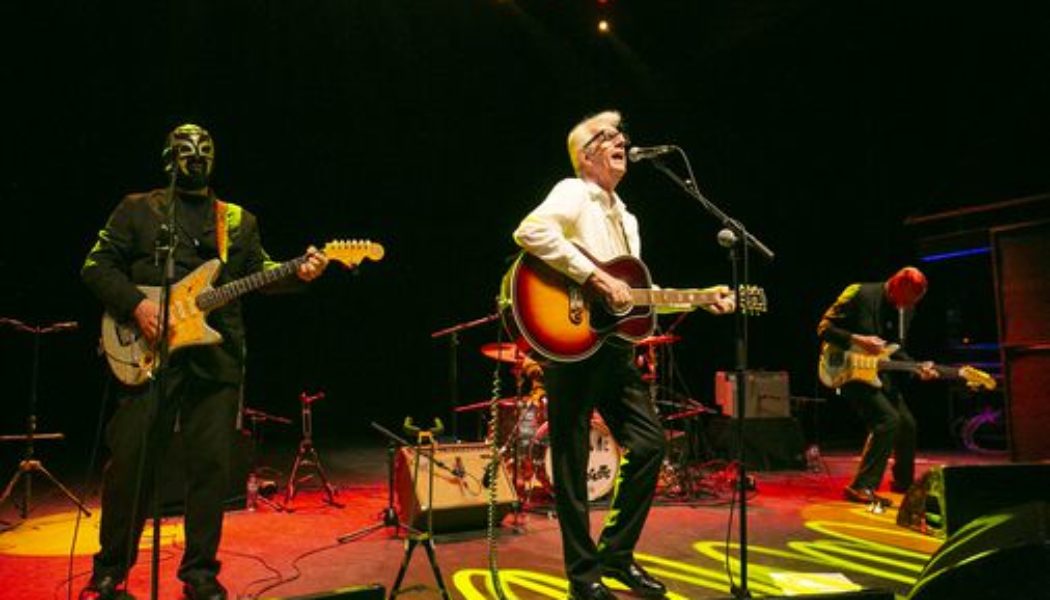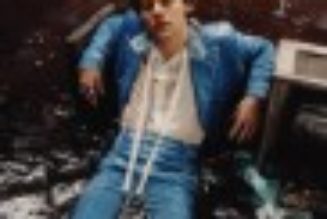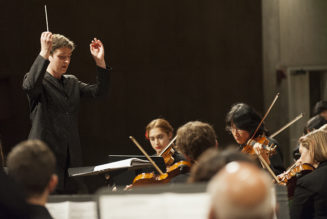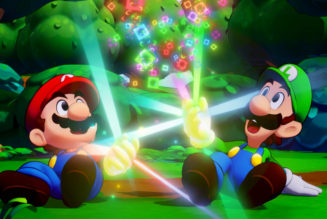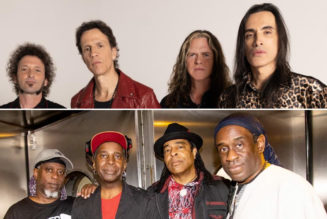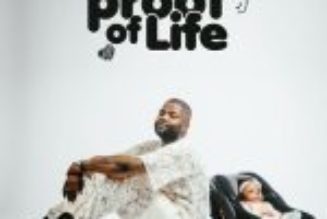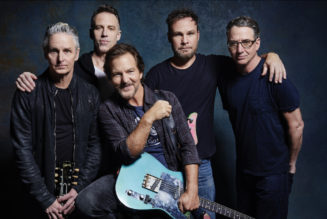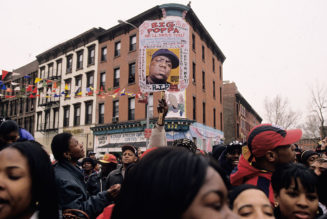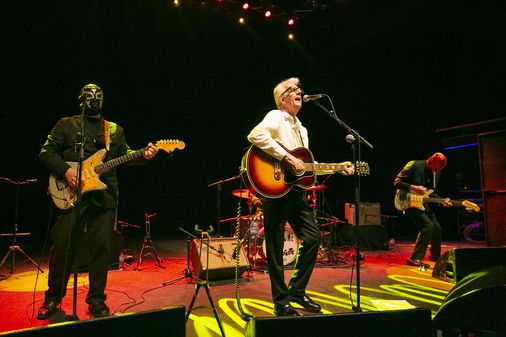
Nick Lowe has been making “pure pop for now people” (as the title of the US version of his solo debut put it) for over half a century. Record titles from the first phase of his career — ”Jesus of Cool,” “Labour of Lust,” “The Abominable Showman” — point to the sublime wordplay and snark he wedded to the power pop he was playing at the time. Then came a musical reinvention of sorts that began with “The Impossible Bird” and reached full bloom with perhaps his finest record, 2001′s “The Convincer.” Snark had turned wry and power-pop had become country-soul, and it was a marvelous change-up. Now 74, Lowe continues to make periodic treks stateside from his native England, and for several years he’s had a touring partnership with surf-twang-rock-’n’-roll outfit Los Straitjackets, who, with or without Lowe, always take the stage wearing Mexican luchador masks. He kicks off his latest US tour with a sold-out date Wednesday at Brighton Music Hall. We reached him by telephone to talk about past and present, Christmas, and the masked men he hangs out with.
Q. You moved from the sort of music you were making in the first part of your career to a kind of second act in which your music changed in a significant way. How did that change came about?
A. Sometime in the early 1980s, I suppose, I came to realize that my career as a pop star had waned. I had fun while it lasted, but I realized that I couldn’t keep it up, and I wasn’t interested enough in that world. My personal life was also in a bad way. I was all the usual cliches, drunk most of the time and taking lots of drugs with the desperate bid to inspire myself. So I decided to separate myself from the business and from everything, really. I changed my whole act, cleaned myself up, and spent a lot of time on my own. Slowly, I came back to the real world, and I started to think about the future. At that time, there weren’t many pop singers who were in their 40s and up. I thought, I’m going to figure out a way of writing songs for myself and presenting myself in a way that will mature as I get older, that lets the aging process take place. I could do this and be like one of those well-turned-out jazz guys.
Q. You’re about to kick off a tour in Boston, and I hear that it will be in part an early Christmas show that will serve to mark your contribution to the genre, “Quality Street,” which has just seen a 10th anniversary vinyl reissue.
A. I got word from the record company that they would appreciate it if we did a little salute to the record [laughs]. It’s a bit of a long way to Christmas, of course, which I rather disapprove of, you know, where you start seeing Christmas stuff in the shops at the end of September. But it is a good record, so we’re very happy to do at least one from it.
Q. I understand that you weren’t wild about the idea of making a Christmas record at first. What brought you around to doing it?
A. I think I had an inbred snobbery about it. I thought coming out with a Christmas record was a sign of somebody who’s on the slide downhill. But I think that feeling lasted for about a minute and a half, and I suddenly thought, wait a minute, this could be quite good fun. The plan was to stay away from “chestnuts roasting on an open fire” and the usual. We went on the lookout for a few unusual songs that people don’t always do or for well-known ones that we could serve up in some sort of interesting way that sounded like we’re having fun with it and it wasn’t just a contractual obligation.
Q. You’ve been playing with Los Straitjackets as your band for several years now. Didn’t that have its origins in the Christmas record?
A. It did. After a year or so went by following the release of the record, it was gently hinted to me that it might be a good idea to do some Christmas shows with Los Straitjackets. We had the same management, so it’s not that peculiar that that idea would be mooted, and I had known them from really a long time ago, just from the circuit. I sent them a list of tunes and they learned up the records, and when we started rehearsing I said, “Listen boys, if you know the chords of the songs, let’s just make up our own versions. I think it’ll work much better.”
Q. “Quality Street” was your last studio album, so it’s been quite a while since you put out a full-length record, but I understand that something is coming from the Nick Lowe-Los Straitjackets partnership.
A. Yes, we’ve recorded some new tracks which are going to be coming out, probably next spring. I’m under no illusions, but I can see the wisdom of putting a record out every so often as a kind of a business card — ”Dances, parties, bar mitzvahs, Nick Lowe and Los Straitjackets, available!”
Interview was condensed and edited. Stuart Munro can be reached at sj.munro@verizon.net.
